Wouldn’t it be great if all malware infections came with a giant neon warning sign? Unfortunately, most cyberattacks are done behind the scenes, only coming to light when the damage is done. Many users have no idea they have a malware infection until their personal information is stolen or their computer is on the fritz. There are a few signs that can indicate malware on your computer – and they’re more common than you think. Here’s what to watch out for:
Slow Speeds
We’ve all experienced it – that frustrating feeling when your computer is running slower than molasses. Your programs take forever to start up, your data bandwidth slows to a crawl, or your computer cursor spins and spins. Sometimes you’re just opening a large file, but if your computer is consistently slow then you may have a virus.
A slow computer doesn’t always mean you’re infected. Computers aren’t a perfect science, and slow speeds have a variety of causes. One of the most common is that you’re running out of RAM. You can find your RAM usage under the memory section in your computer’s settings. You could also have damaged hardware or little space left on your hard drive.
If your computer is running slowly, it’s time to play the process of elimination. If you’ve ruled out other causes, you may be infected with malware.
Frequent Crashing
Have you ever been working on something important and had your computer throw up the blue screen of death (BSOD)? A computer crash is always alarming and is usually caused by either a technical problem or malware. There are other reasons, too – incompatible programs or outdated drivers can also cause computer crashes. Computer crashes happen, but if yours is crashing regularly then you may have a virus.
A good place to start is to determine what caused your last crash. Your computer keeps a list of logs and marks the ones that crash with an “error” alert. You can find the list under the Event Viewer tab in your administrative tools folder. Just click “Windows Logs”.
Frequent crashing could be a sign of a serious problem with your PC. It’s best to consult your IT department for help in diagnosing and fixing your computer.
Suspicious Programs or Files
If you find suspicious files or unfamiliar programs on your device, you could be infected with malware. You’ll often notice a lack of storage space as your hard drive is filled with junk files and programs. There are multiple types of malware known for corrupting data; ransomware is a common culprit in which your data is held ransom for payment.
It’s crucial to never make payment to, or even open, suspicious files or programs. If you find unfamiliar programs on your device, notify your IT personnel immediately. Seek help in-person – it’s best to use your computer as little as possible if you suspect a malware infection, as it may spread to other devices in your network.
Excessive Pop-Ups or Unwanted Websites
Whether it’s an ad for free soap, a request for subscription, or a fake giveaway scam, pop-ups are a frequent – and annoying – price to pay for using the internet. Pop-ups are frequently caused by a type of malware called Adware, which is downloaded into your computer when you click on suspicious pages or install free applications. If you’re experiencing excessive pop-ups, or have pop-ups that don’t seem to originate from your browser, you may have a malware problem.
To avoid this, don’t click on pop-up pages – just close them. Run frequent malware scans and keep your browsers updated. Finally, be picky about which apps you install. Even popular apps have been known to infect computers with viruses, malware, and annoying pop-ups. Always read the terms and conditions carefully and avoid downloading free apps when possible.
You’re Spamming Your Friends
Malware can use your email or social media accounts to spread by sending spammy messages or links to your contacts. If you hear that your friends are receiving suspicious messages from you, spyware is likely the culprit. Reset your passwords and strengthen your security through multifactor authentication – additional things like security questions or passcodes that are required for all new devices. Of course, warn your contacts not to open any suspicious messages from your accounts.
An Overactive Hard Drive
If you notice that your hard drive is hard at work when it shouldn’t be, you may have malware. If you aren’t running any programs, but your hard drive thinks you are, there are probably programs and viruses working in the background. A constant light on your external modem can also indicate a malware problem. If you notice these signs, it’s time to run a security scan.
The best offense is a good defense. A strong security system like our advanced cybersecurity threat protection is the best way to avoid getting malware on your computer. If you suspect you have malware, we can help! Our IT professionals can tackle your security problems to get – and keep – your computer virus-free and running its best. Contact us today!
RELATED:
5 Security Practices That Are Leaving Your Business Vulnerable
Phillip Long – CISSP, CEO of , along with his team of marketing and information technology experts, will walk you through an overview of what your business should be doing to protect your data and plan your digital marketing strategies.
About
is the technology leader on the Gulf Coast and is comprised of four divisions: Information Technology, Web Design & Digital Marketing, Office Equipment and Business Consulting. Together these divisions help local businesses exceed expectations and allow them to group to their full potential while minimizing risks. To learn more about , visit bistechnologygroup.com.
You may reach out to us at:
Phone: 251-405-2527
Email: plong@askbis.com











